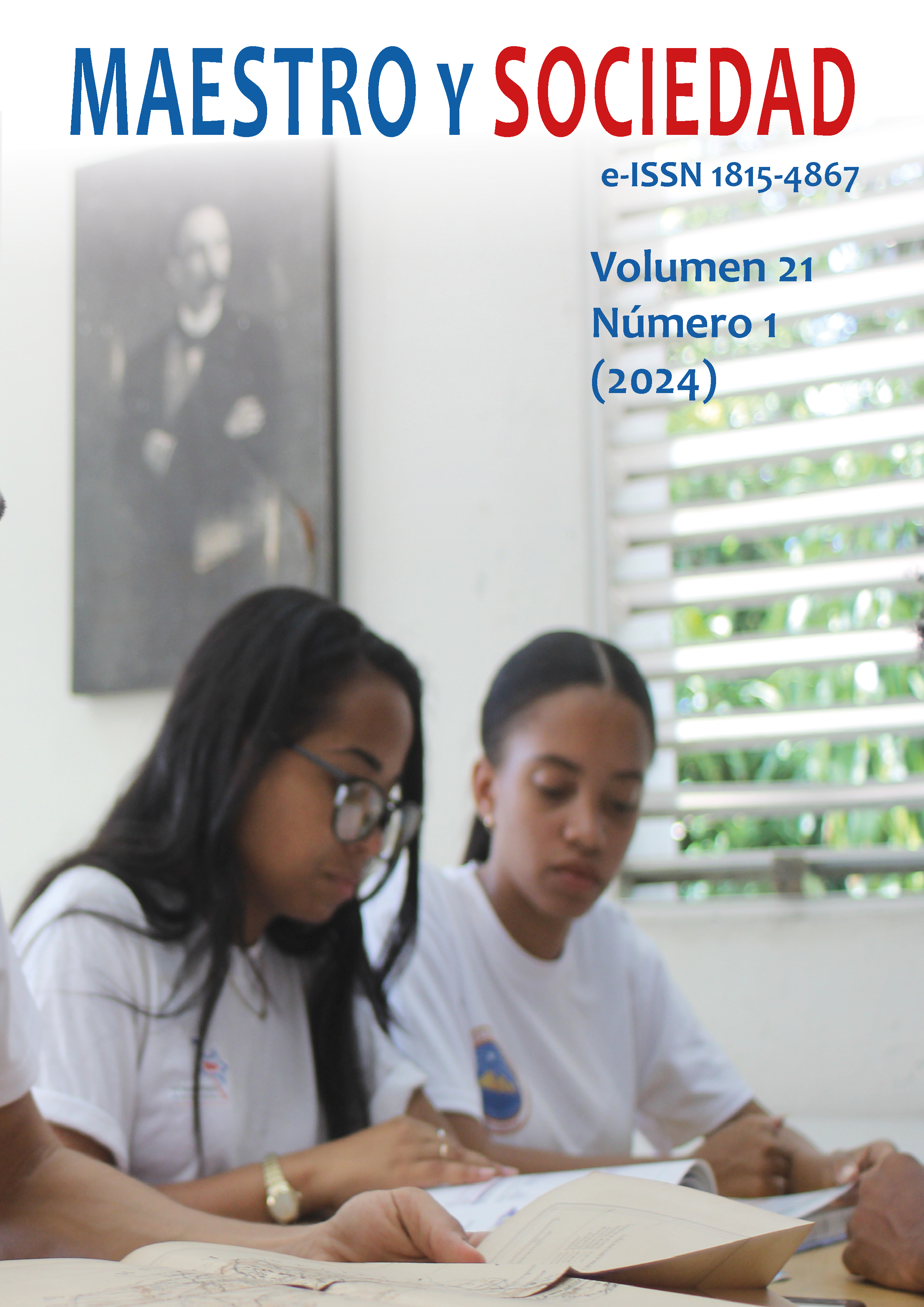Estrategia de preparación para el empleo a egresados en Medicina
Palavras-chave:
Formación continua, superación profesional, egresado en medicina, medicina penitenciaria, medicina penalResumo
Introducción: La preparación de los profesionales del sector de la salud y la calidad de su desempeño, para satisfacer las necesidades siempre crecientes de la sociedad, se puede perfeccionar sistemáticamente mediante la educación de postgrado. El presente trabajo tiene como Objetivo: Implementar una estrategia de preparación para el empleo de los egresados en medicina sobre medicina penal. Materiales y método: La población de estudio quedó determinada por 34 participantes, de ellos 30 se correspondían con médicos de reciente graduación, 2 directivos y 2 docentes. Se emplearon métodos del nivel teórico, empírico y estadístico- matemático, empleando como instrumento la encuesta y observación a egresados y entrevistas a directivos y docentes. Resultados: Insuficiencias en cuanto a la formación y preparación de los médicos egresados para desempeñarse en los centros penitenciarios. Discusión: La implementación de la estrategia favoreció el desarrollo de actividades de superación con los egresados. Conclusiones: El desarrollo de una estrategia favorece el desarrollo de conocimiento teórico y habilidades prácticas que garanticen un adecuado desempeño de los egresados en medicina en los centros penitenciarios.
Referências
Durán Fonseca, A. M., Céspedes Acuña, J. E., Cintra Lugones, Á. L. (2018). Estrategia de superación para fortalecer la Historia de la Medicina de Santiago de Cuba.
García García, J. J., Moreno Altamirano, L., Flores Ocampo, A. E. (2020). La investigación-acción como estrategia educativa para la obtención de aprendizajes significativos en la promoción de la salud pública en alumnos de la facultad de medicina de la UNAM. Investigación en educación médica, 9(36), 41-51. http://doi.org/10.22201/fm.20075057e.2020.36.20228
Horruitinier Silva, P. (2020). La universidad cubana: modelo de formación. Editorial Felix Varela.
Hernández Suarez, D., Rodríguez Acosta, Y., Hernández Suarez, D., & Tapanes Acosta, M. (2022). Las estrategias curriculares en función de la formación integral del egresado de las ciencias médicas. EDUMCENTRO, 14, E1729. http://scielo.sld.cu/scielo.php?script_sci-arttext&pid_s2077-28742020001000023&ting_es
López Fernández, A. G., Cruañas Sospedra, J., Salgado Friol, A. H., Lastayo Bourbon, L. H., Pérez Yero, C. M., Rigual Delgado, S. M. (2007). Una propuesta de aplicación de estrategia curricular de investigación e informática en la carrera de medicina. http://scielo.sld.cu/scielo.php?script_sciarttext&pid_S1684 18592017000100006.
MES. (2019). Reglamento de Educación Postgrado de la República de Cuba. Resolución No. 140/2019. Gaceta Oficial de la República de Cuba.
Piñón, J. y Del Toro, A. (2004). Tutor y proceso tutoral en la formación continua del recién graduado. http://www.eumed.net/rev/ced.37241
Rodríguez Neyra, M. E., Carrasco Feria, M. de los A. (2017). Metodologia para la implementación de estrategia curricular de investigación e informática en la carrera de medicina. CCM 2017. http://scielo.sld.cu/scielo.php?script_sci.arttext&pid_S1560-438120170002000010&ing-es
Sandrino Sánchez, M., Hernández Suarez, N., Madraso Calzadilla, Y., Valdés Duarte, L. y Dopico Ravelo, D. (2020). Implementación de estrategias curriculares en la asignatura Propedéutica Clínica y Semiología Medica. Rev Ciencias Médica, 24(1):e4151. http://revcmpinar.sld.cu/index/publicaciones/article/view/415
Vallejo Portuondo, G. R., Mendo Alcolea, N., Lahera Puig, M. L. (2019). Procedimientos diagnostico-metodológicos para la implementación de las estrategias curriculares en la educación superior. MEDISAN. 2019. http://scielo.sld.cu/scielo.php?scvript_sci arttex&pid_1029301920190000200360
Publicado
Como Citar
Edição
Seção
Licença
Copyright (c) 2024 Ana Lidia Ford Torralba, Yuri Alvarez Magdariaga, Anabel Borrero Fernández

Este trabalho está licenciado sob uma licença Creative Commons Attribution-NonCommercial-NoDerivatives 4.0 International License.
Esta revista proporciona un acceso abierto inmediato a su contenido, basado en el principio de que ofrecer al público un acceso libre a las investigaciones ayuda a un mayor intercambio global de conocimiento. Cada autor es responsable del contenido de cada uno de sus artículos. Los artículos pueden ser inéditos o estar disponibles previamente en servidores de preprints reconocidos por la revista. Sin embargo, no se permite la duplicación de la publicación o traducción de un artículo ya publicado en otra revista o como capítulo de un libro.
This journal provides immediate open access to its content, based on the principle that providing the public with free access to research supports a greater global exchange of knowledge. Each author is responsible for the content of each of their articles. Articles may be previously unpublished or available on preprint servers recognized by the journal. However, duplication of publication or translation of an article already published in another journal or as a book chapter is not permitted.
Esta revista oferece acesso aberto imediato ao seu conteúdo, com base no princípio de que oferecer ao público acesso gratuito à pesquisa contribui para um maior intercâmbio global de conhecimento. Cada autor é responsável pelo conteúdo de cada um de seus artigos. Os artigos poderão ser inéditos ou estar previamente disponíveis em servidores de preprints reconhecidos pela revista. No entanto, não é permitida a duplicação de publicação ou tradução de artigo já publicado em outro periódico ou como capítulo de livro.



























 Universidad de Oriente
Universidad de Oriente 